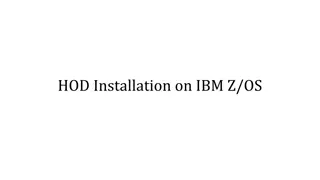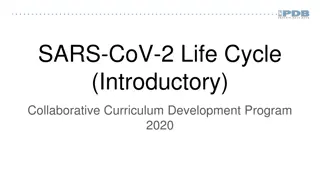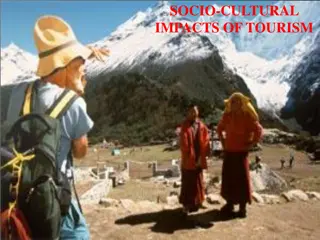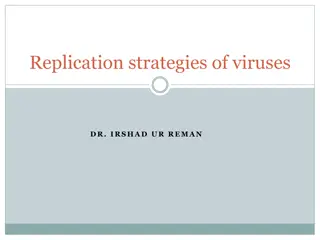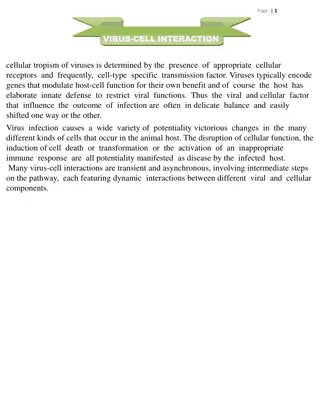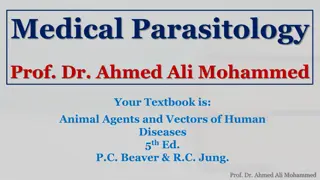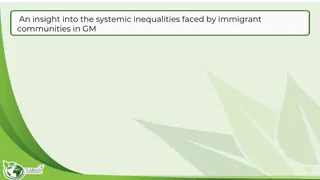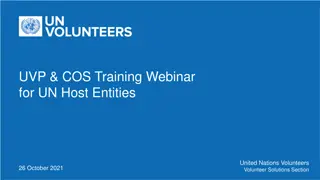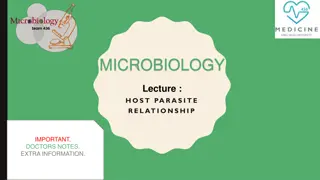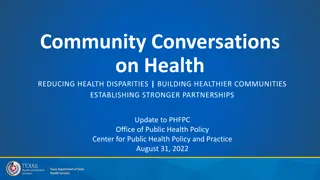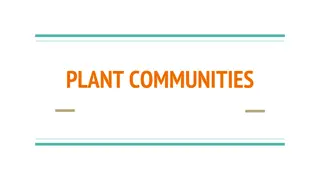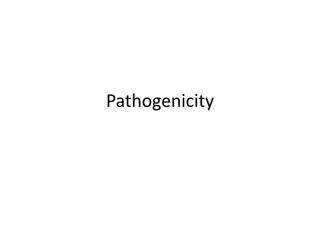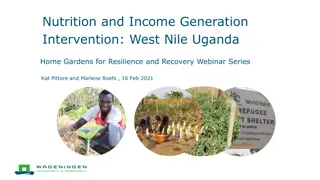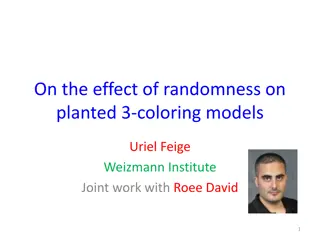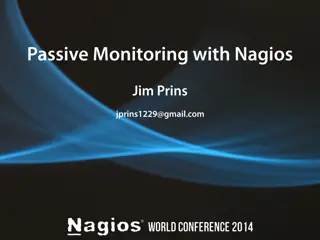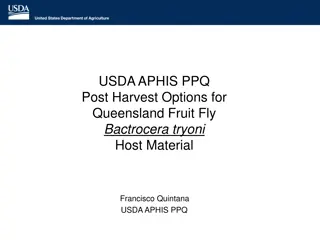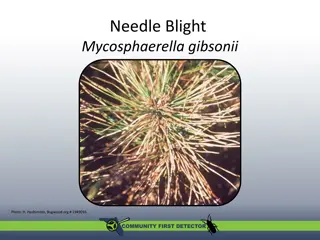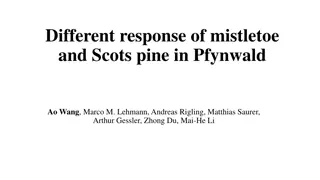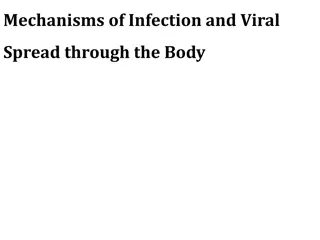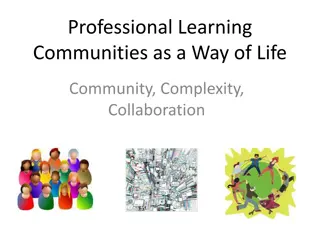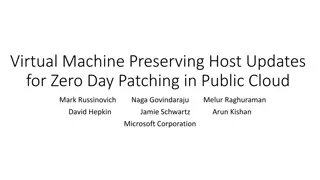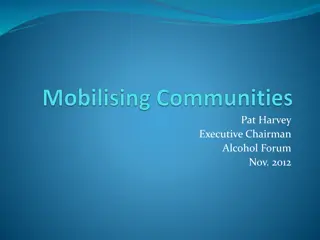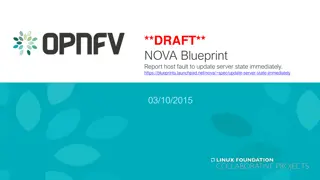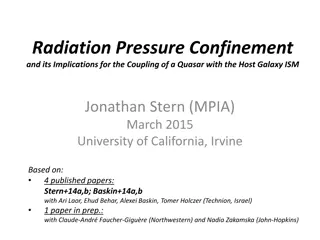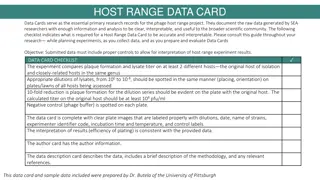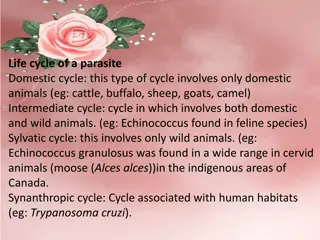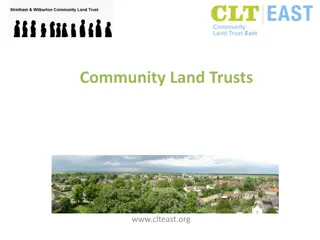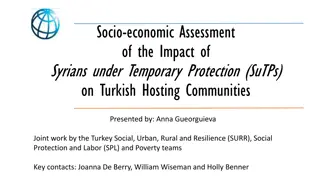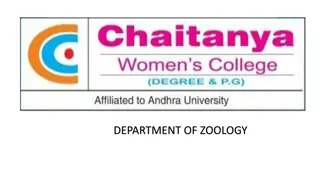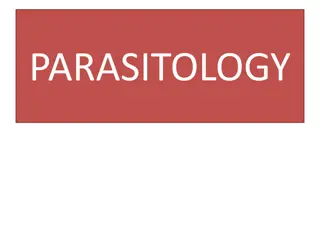Understanding Communities: Characteristics, Interactions, and Differences from Society
Communities are groups of people with shared characteristics and goals, fostering a sense of belonging and mutual support. They thrive on social interactions, diversity, and interdependence. Contrasted with society, where diverse communities coexist, communities have a more concrete existence and lo
6 views • 6 slides
Understanding Graft-Versus-Host Disease (GVHD) and Its Symptoms
Graft-versus-host disease (GVHD) is a potential complication following stem cell or bone marrow transplants, where donor cells attack the recipient's body. GVHD can occur in acute or chronic forms, presenting symptoms such as abdominal issues, skin rash, dryness, joint pain, and more. This autoimmun
0 views • 13 slides
Understanding Host Bibliographic Records in Alma/Primo VE
Explore the concept of Host Bibliographic Records in the Alma/Primo VE system, which address the issue of linking single items to multiple bibliographic records. Learn how host bibs work, their creation during data migration, implications for library services, and the various types of host bibs used
0 views • 24 slides
Step-by-Step Guide to Host On-Demand Installation on IBM Z/OS
Comprehensive instructions for installing Host On-Demand on IBM Z/OS platform, including prerequisites, configuring in administrative mode, using Installation Manager, setting up repositories, and launching IBM Installation Manager in console mode.
0 views • 26 slides
Understanding the SARS-CoV-2 Life Cycle: An Overview
SARS-CoV-2, the virus responsible for COVID-19, follows a complex life cycle involving viral attachment and entry, replication and synthesis, as well as viral assembly and release. The virus interacts with host cell proteins to enter, produce essential proteins and RNA for reproduction, and then ass
1 views • 5 slides
Understanding the Socio-Cultural Impacts of Tourism
The socio-cultural impacts of tourism on host communities can be both positive and negative. Tourism can influence local identities, values, and traditions, leading to changes in behavior and community structures. While tourism can create job opportunities and foster cultural pride, it may also resu
0 views • 28 slides
International Human Resources Management Approaches and Staffing Policies
International human resources management involves strategic staffing policies, such as ethnocentric, polycentric, geocentric, and regiocentric approaches. It focuses on selecting employees who align with the organization's culture and values. Hiring practices in global firms consider factors like ho
2 views • 27 slides
Viral Genome Replication Strategies and Mechanisms
Viruses utilize different replication strategies to ensure the replication of viral genomes, packaging into virions, and potentially altering the host cell's structure or function. These strategies are vital for the virus to operate effectively within the host cell's constraints. The replication pro
0 views • 15 slides
Guess the Phrase: A Fun Lip-Reading Game Show
Players participate in a lip-reading game show where they have to guess words or phrases mouthed by a host. Each correct guess earns points, with the player accumulating the most points declared as the winner. Quick guesses in the group chat are key to winning rounds. Host mutes and player unmutes e
0 views • 20 slides
Understanding Virus-Cell Interactions and Infections
Viral infections exhibit diverse cellular tropism based on receptor interactions, impacting cell function through modulation and potential host defense responses. Infections can lead to various outcomes, from cell death to persistent or latent states, with nuanced effects on cellular behavior. Diffe
0 views • 8 slides
Understanding Parasitism in Medical Parasitology by Prof. Dr. Ahmed Ali Mohammed
Prof. Dr. Ahmed Ali Mohammed delves into the intriguing world of parasitism, exploring the complex relationships between parasites and hosts. He explains the various types of relationships in parasitology, such as symbiosis, mutualism, commensalism, and parasitism, shedding light on how parasites in
0 views • 23 slides
Systemic Inequalities Faced by Immigrant Communities in Greater Manchester
Gain insight into the systemic inequalities faced by immigrant communities in Greater Manchester, including definitions of refugees and asylum seekers, a snapshot of refugee and migrant communities in Manchester, the Iranian diaspora in the UK, global migrant statistics, and common health issues fac
0 views • 10 slides
Unified Volunteering Platform: Host Entity Account Management Training Update
Explore the recent updates in the Unified Volunteering Platform focusing on Host Entity account management training, webinars for UN Host Entities, and the launch of new self-service features. Learn about the roles within Host Entity accounts and the transition to the new system. Contact support for
0 views • 7 slides
Understanding Host Defense Mechanisms Against Infection
Host defense mechanisms safeguard the body from pathogens through various strategies such as intact skin, mucous membranes, nonspecific immune responses like phagocytic cells, and specific immune responses involving antibodies and lymphocytes. Key protective barriers include the skin, eyes, digestiv
3 views • 16 slides
Understanding Host-Parasite Relationship in Microbiology
In microbiology, the host-parasite relationship is crucial for understanding diseases caused by pathogens. This lecture covers definitions of terms like pathogenicity, pathogen, disease, resistance, susceptibility, infection, virulence, and transmissibility. It also delves into the division of host
0 views • 16 slides
Structural Design for Host Mall - Commercial Building Overview
This detailed content presents the structural design considerations for a commercial building called Host Mall located in Ramallah city. It covers various aspects including material properties, structural system, load transfers, preliminary design calculations, and slab thickness evaluation.
1 views • 37 slides
Community Conversations on Health: Reducing Disparities and Building Healthier Communities Update
This update highlights grant activities focusing on reducing health disparities, building healthier communities, and establishing partnerships. It includes current funding activities, top priorities, grant coordination, Texas Public Health Fellowship overview, fellowship host sites, and details for
0 views • 17 slides
Understanding Plant Communities: Definition, Characteristics, and Succession
Plant communities are naturally occurring groups of plant and animal populations living in a common environment. They consist of various qualitative and quantitative characteristics such as floristic composition, vitality, density, cover, abundance, frequency, and more. Ecotones and edge effects pla
2 views • 8 slides
Understanding Pathogenicity in Infectious Diseases and Parasitism
Pathogenicity refers to the ability of a pathogen to cause disease in plants, humans, and animals. Infectious diseases and parasitism play key roles in the spread and development of epidemics. Parasites can hinder the normal growth of plants by extracting nutrients, while different types of parasite
0 views • 5 slides
Understanding Host Stars and Their Importance in Exoplanet Research
Host stars play a crucial role in determining the physical parameters of planets they host, impacting exoplanet characterization and planet formation understanding. Data from astrometry, photometry, and spectroscopy, combined with stellar evolutionary models, help derive host star properties critica
0 views • 51 slides
Nutrition and Income Generation Intervention in West Nile, Uganda: Empowering Communities through Home Gardens
This webinar series discusses a project in West Nile, Uganda, focused on enhancing nutrition and income generation through interventions like vegetable production, seed quality support, and nutrition education. By promoting household gardens and commercial vegetable farming, the project aims to boos
4 views • 21 slides
Exploring the Impact of Randomness on Planted 3-Coloring Models
In this study by Uriel Feige and Roee David from the Weizmann Institute, the effect of randomness on planted 3-coloring models is investigated. The research delves into the NP-hard nature of 3-coloring problems, introducing a hosted coloring framework that involves choices like the host graph and th
0 views • 55 slides
Managing Passive Host and Service Checks with Nagios Core
Learn how to enable passive host and service checks in Nagios Core via the configuration file, allowing for monitoring without actively polling the hosts and services. Understand the setup, configuration, and usage of passive checks in your monitoring system. Explore examples and best practices for
0 views • 30 slides
The Intriguing World of Staged Seduction in Tokyo Host Clubs
The chapter delves into the meticulously choreographed experiences at Host Clubs, where relationships go beyond monetary transactions to shape imaginings of a predestined future. Hosts and clients navigate a realm of commodified romance, negotiating intimacy and exceptionalism. The narrative unfolds
0 views • 9 slides
Post-Harvest Options for Queensland Fruit Fly Bactrocera tryoni Host Material
Explore the diverse post-harvest treatment options available for managing Queensland Fruit Fly Bactrocera tryoni on various host materials. From bait treatments to cold treatment and juicing, discover the challenges, limitations, and suitability factors impacting the treatment cycles. Additionally,
0 views • 10 slides
Needle Blight Mycosphaerella Gibsonii: Symptoms, Host Plants, and Management
Needle blight caused by the fungal pathogen Mycosphaerella gibsonii is a serious disease affecting various species of Pinus trees. The disease, first recorded in Japan in 1913, primarily impacts seedlings and saplings, leading to significant infection rates and death rates under epidemic conditions.
0 views • 21 slides
Contrasting Responses of Mistletoe and Scots Pine in Pfynwald Study
The research investigates the distinct responses of mistletoe and Scots pine in the Pfynwald forest. The study explores the dynamics of carbon and nutrient uptake by mistletoes from host trees under varying environmental conditions. Hypotheses include the impact of tree irrigation on photosynthesis
0 views • 14 slides
Understanding Mechanisms of Viral Infection and Spread
Viral infection involves a replicative cycle within the host, leading to a range of cellular responses from no apparent effect to disease. Factors such as virulence genes, host characteristics, and viral genome influence the pathogenicity and virulence of a virus. The process includes entry into the
0 views • 16 slides
Understanding Professional Learning Communities in Education
Professional Learning Communities (PLCs) are essential in education for fostering collaboration, sharing knowledge, and improving teaching practices. This article explores the benefits of PLCs, types of communities, research on learning communities, and the formation of teacher professional communit
0 views • 14 slides
Zero Day Patching Without Rebooting - A Cloud Solution
Explore how Azure developed Virtual Machine Preserving Host Updates (VM-PHU) to update host OS without rebooting millions of servers, ensuring reliability, security, and minimal downtime. Learn about hardware acceleration, blackout time optimization, fast reboot strategies, and more for efficient ze
0 views • 14 slides
Mobilising Communities for Positive Impact: A Call to Action
Explore the journey of Pat Harvey and The Prompt in spearheading initiatives to mobilize communities for positive change. From tackling issues related to alcohol to fostering alignment and synergy across agencies and communities, the focus is on research, fine-tuning strategies, and implementing evi
0 views • 8 slides
Role of Host Communities in Final Disposal of Spent Nuclear Fuel in Finland and Sweden
Explore the pivotal role of local communities in managing spent nuclear fuel in Finland and Sweden through in-depth analysis of repository projects in Eurajoki and Oskarshamn. Learn about the evolution of host municipality approaches to final disposal and the shift towards collaborative and consulta
0 views • 20 slides
Enhancing Server State Detection in OpenStack for Immediate Host Fault Reporting
This blueprint proposes the development of a new API in Nova to promptly update the server state in OpenStack when a host fault occurs. The intention is to ensure reliability and real-time updates of server and host states for Telco-grade VIM, allowing users to take necessary actions swiftly in case
0 views • 5 slides
Understanding Radiation Pressure Confinement in Quasars and Their Host Galaxies
Jonathan Stern's research explores the implications of radiation pressure confinement on the interaction between quasars and their host galaxies, focusing on photo-ionized gas systems. Through modeling and analyzing various properties of these systems, the study offers insights into quasar feedback
0 views • 35 slides
Guidelines for Host Range Data Card Creation in Phage Research
Essential checklist for creating accurate and interpretable Host Range Data Cards in phage host range projects, detailing required experiment components, controls, data documentation, and analysis. The provided checklist ensures the inclusion of necessary information and proper formatting for clear
0 views • 6 slides
Understanding the Complexities of Parasite Life Cycles and Host Interactions
Parasites exhibit diverse life cycles and behaviors, with cycles ranging from domestic to sylvatic environments. Factors influencing parasite diseases include host specificity, immunity, and host-parasite interactions. Parasitism can alter host behavior, impacting ecological dynamics. Immunology pla
0 views • 9 slides
Community Land Trusts: Empowering Communities through Collective Ownership
Community Land Trusts (CLTs) are legal entities run by local volunteers to collectively own and manage property/land, undertake development projects, and secure assets for the community. With priorities set by communities to address local issues like affordable housing and recreation, CLTs provide a
0 views • 13 slides
Socio-Economic Impact Assessment of Syrians under Temporary Protection on Turkish Hosting Communities
This study, conducted in Turkey, aims to assess the socio-economic impact of Syrians under Temporary Protection (SuTPs) on Turkish hosting communities. Through a mix of quantitative and qualitative research methods, the study focuses on identifying the impacts on host communities, utilizing a sample
0 views • 18 slides
Life Cycle of Ascaris lumbricoides in Human Host
Ascaris lumbricoides, commonly known as roundworm, is a human parasite found in the intestine. The life cycle involves copulation, egg development, and infection of a new host through ingestion of eggs. It does not require an intermediate host. The larval stages undergo migration within the body. Th
0 views • 14 slides
Understanding Parasitology: The Study of Organisms Living on or within Hosts
Parasitology is the study of parasites, which are organisms that live on or within a host and derive nutrients from them without benefiting the host. Parasites can be classified as ectoparasites or endoparasites based on their location in or on the host. Hosts play a crucial role in the life cycle o
0 views • 23 slides



